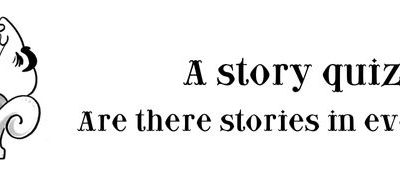Your brain is in love with storytelling.
Like most people who seek mastery, I stay informed about storytelling by reading books and articles.
I clipped a brief article from the Harvard Business Review back in 2014 (Oct 28) and I recommend you read it. It was one of the answers to a question I often asked. Why Your Brain Loves Good Storytelling
The contributor is Dr. Paul J. Zak, a professor of economics, psychology, and management at Claremont Graduate University. He is the author of
- Trust Factor: The Science of Creating High-Performance Companies
- Immersion: The Science of the Extraordinary and the Source of Happiness
- The Moral Molecule: How Trust Works
- Moral Markets: The Critical Role of Values in the Economy, all of which are available from Amazon.
The friendly chemical
In 2004 his team ‘discovered that a neurochemical called oxytocin is a key “it’s safe to approach others” signal in the brain.
I cannot – for copyright reasons – include his entire article but here are some brain teaser exerpts.
‘Oxytocin is produced when we are trusted or shown a kindness, and it motivates cooperation with others. It does this by enhancing the sense of empathy, our ability to experience others’ emotions. Empathy is important for social creatures because it allows us to understand how others are likely to react to a situation,
A ‘hack’ reveals something important about storytelling
He decided to ‘hack’ the production of oxytocin in subjects’ brains with various stimulation, including telling stories.
‘… we found that character-driven stories do consistently cause oxytocin synthesis
…’ When a request for action was required – like giving a donation to a charity where the characters in the narrative were related to it, the desire to give was directly proportional to the amount of oxytocin produced.
If the narrative can create tension, audiences will feel like mimicking the behaviours of the characters – like feeling tougher after watching James Bond movies or the Spartans in ‘300’.So use storytelling in business settings
How often have you heard me say this kind of thing?
‘These findings on the neurobiology of storytelling are relevant to business settings. For example, my experiments show that character-driven stories with emotional content result in a better understanding of the key points a speaker wishes to make and enable better recall of these points weeks later. In terms of making impact, this blows the standard PowerPoint presentation to bits. I advise business people to begin every presentation with a compelling, human-scale story. Why should customers or a person on the street care about the project you are proposing? How does it change the world or improve lives? How will people feel when it is complete? These are the components that make information persuasive and memorable.’
Please read the article. It will give you a stronger backbone when considering using a story to make your point.
I run a webinar called Storytelling Works from time to time.
If you’d like to be invited. reply to this email with ‘Invite me to the next Storytelling Works Webinar’ in the subject.






